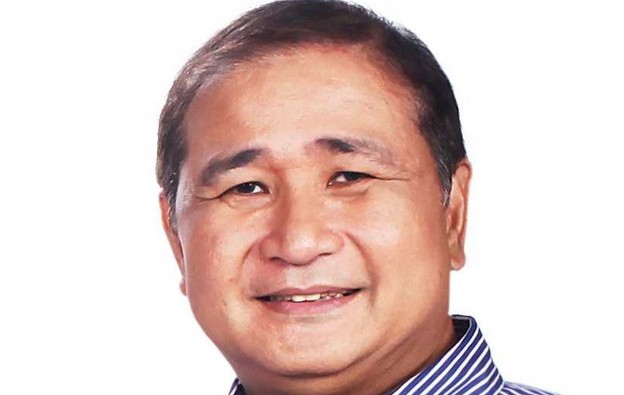Philippines mulls casinos at third Manila capex: report
Feb 03, 2016 Newsdesk Latest News, Philippines, Top of the deck

The Philippines is willing to offer new casino licences in regional locations for as little as one-third the cash investment the authorities have previously required from investors for a new casino in the capital Manila, it has been reported.
According to a Bloomberg News interview – published on Wednesday – with Cristino Naguiat (pictured), chairman of the country’s casino regulator the Philippine Amusement and Gaming Corp (Pagcor), the body is willing to listen to proposals for new gambling licences outside Manila.
The minimum investment for such new regional casinos is likely to be about US$300 million, the report suggested. The four private sector casino resorts approved for the Entertainment City complex – two of them already open – required a minimum investment of US$1 billion.
Pagcor is “open to giving out a casino licence if it can help boost economic activity and if the people in the area want it. We’re developing a template to ensure that no one would be granted a licence unless an investment commitment is made,” Mr Naguiat was quoted as saying. He declined to disclose those locations, according to the report.
The minimum investment for new regional gaming venues could vary depending on the location, but would be likely to be implemented by the country’s next president after the incumbent, Benigno Aquino, completes his six-year term of office in June, Mr Naguiat was quoted as saying.
A representative of a company called Sino-America Gaming Investment Group LLC told GGRAsia in an April interview that it was interested in building two casino resorts in beachside locations in the Philippines, including one on the popular holiday island of Cebu. The proposed price tag for the latter was said to be US$300 million.
Chinese VIP decline
Brokerage CLSA Ltd said in its latest report on Chinese outbound tourism – and referring to factors including China’s anti-graft campaign – that the current Philippine casino operators were “not immune to the collapse in the Chinese VIP space, but we estimate the [casino gross gaming revenue] impact to be 10 percent to 15 percent at most”.
Combined gaming revenue from government-run and privately-owned properties could reach PHP135 billion (US$2.8 billion) in 2016, Mr Naguiat told Bloomberg. That would represent an 8 percent increase from a combined PHP125 billion last year, he added.
The level at which countries set the bar for capital investment in casino projects is important in the context of declining regional and global volume of chip roll by Chinese VIP gamblers, say a number of other investment analysts.
Morgan Stanley Research said in a report on January 6 that it expected there would be only a 3.7 percent return on investment in the first year of operation for backers of a planned South Korean casino resort called Paradise City. The foreigners-only casino and its accompanying leisure facilities are being constructed near Incheon International Airport in South Korea.
When the proposed operator, South Korean casino business Paradise Co Ltd, broke ground on the project in November 2014, it talked of spending US$1.7 billion in total in order to secure a gaming licence, at a time when revenues from Chinese gamblers were still firmly rising in that country’s casino sector.
Morgan Stanley said in its January 6 report that Paradise Co was still stating a commitment to spending US$1 billion on phase one, but that under current market conditions that level of spending would see a significant narrowing of returns on invested capital
“… in its first full year of operation in 2018, we expect a 3.7 percent return on investment, significantly below the average ROIC [return on invested capital] of 22 percent and 31 percent, respectively achieved by casinos in Macau and Singapore,” said Morgan Stanley.
The Vietnamese government is currently said to be looking at halving the minimum required capital investment for each of the country’s proposed new licences for so-called integrated resorts featuring casinos. Currently the figure is set at US$4 billion.
“The government knows that it cannot, at this point, solicit any US$4-billion-dollar project,” said Augustine Ha Ton Vinh during a conference session of the Macao Gaming Show in November that discussed the prospects of the Vietnam market. Mr Vinh is an academic who says he is advising the Vietnamese government on the liberalisation of the country’s gaming industry.
Related articles
-
 Donaco EBITDA up y-o-y to above US$4mln...
Donaco EBITDA up y-o-y to above US$4mln...Jul 26, 2024
-
 RGB says ‘unaffected’ by...
RGB says ‘unaffected’ by...Jul 26, 2024
More news
-
 HK listed Palasino upgrades Czech...
HK listed Palasino upgrades Czech...Jul 26, 2024
-
 China embassy in Manila welcomes POGO...
China embassy in Manila welcomes POGO...Jul 26, 2024
Latest News
Jul 26, 2024
Border-casino operator Donaco International Ltd has achieved a 164.17-percent year-on-year increase in its latest quarterly group earnings before interest, taxation, depreciation and amortisation...Sign up to our FREE Newsletter
 (Click here for more)
(Click here for more)
Pick of the Day
”We’ve got more traction outside of Macau at the moment. But Macau’s going be a bigger focus for us”
David Punter
Regional representative at Konami Australia
Most Popular
 Sheraton brand to exit Londoner Macao, to be Londoner Grand July 25, 2024
Sheraton brand to exit Londoner Macao, to be Londoner Grand July 25, 2024  Macau regulator probes unlicensed gaming agents July 24, 2024
Macau regulator probes unlicensed gaming agents July 24, 2024  Philippines gives 20k aliens in POGOs 60 days to leave July 25, 2024
Philippines gives 20k aliens in POGOs 60 days to leave July 25, 2024  Philippines-listed DigiPlus says not affected by POGO ban July 24, 2024
Philippines-listed DigiPlus says not affected by POGO ban July 24, 2024  Sands China 2Q EBITDA down q-o-q amid low hold, renovation July 25, 2024
Sands China 2Q EBITDA down q-o-q amid low hold, renovation July 25, 2024





